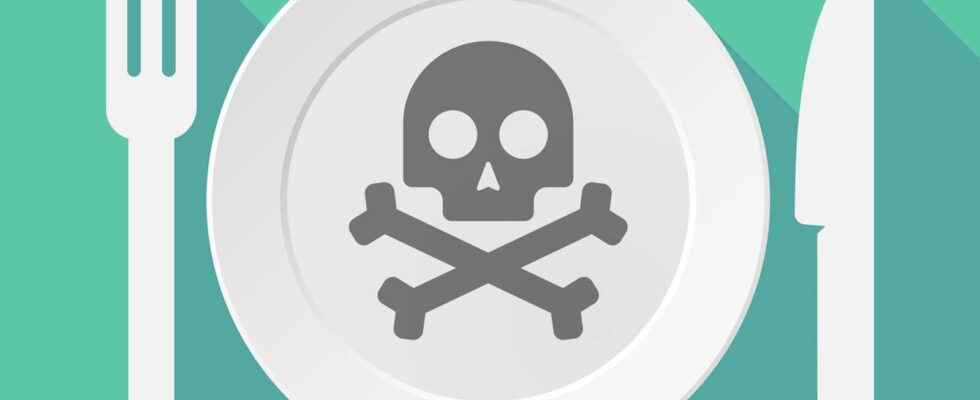In 2019, a young Israeli woman was hospitalized for severe malnutrition with irreversible brain damage after eating only fruit juice and water for three weeks. Ketogenic diet, paleo raw food diet or detox cure: these fashionable diets promising weight loss and better well-being actually prove to be harmful in the long term for the body.
You will also be interested
[EN VIDÉO] Naturally Yours: “The Best Diet Is No Diet” In this new episode of “Naturally yours”, nutritionist Arnaud Cocaul shares his opinion on diets. Are they good or bad? According to him, the best diet is not one based on restriction but on quantity control.
Some 44% of French people have already followed a diet according to a 2015 Ipsos survey, with an average of four types of diets experienced. Among the most popular: the ketogenic diet, the paleo diet, the Mayo diet, the raw food diet or detox cures. Diets all based on the exclusion of many classes offood, which is not without consequences for the organism. These deprivations, in addition to causing frustration and regaining weight, can have serious consequences, even leading to death. Short, beware of fad diets and nutritional modes based on unreliable scientific claims.
The raw food diet
It consists of eating only raw foods: vegetables, fish Where cereals sprouted. However, cooking not only improves the taste and digestibility of food, but it also promotes the absorption of certain nutrients like lycopene in the tomato. There are real risks of deficiency and undernutrition. A 2015 study published in Annals of Nutrition and Metabolism showed that a quarter of women following this type of diet had a body mass index (BMI) below normal and 30% suffered fromamenorrhea. Finally, raw foods are more likely to cause food poisoning: eggs can contain salmonellaraw fish from parasites and sprouted seeds have been the source of one of the most serious poisonings E.coli in Europe in 2011.
The ketogenic diet
Like the Atkins diet, the ketogenic diet is based on a diet rich in lipids and poor in sugars. It provides in principle 70% to 90% of lipids and 5% of carbohydrates, i.e. proportions almost the opposite of those of a conventional diet. It causes a state of ketosiswhere the liver metabolizes fat to make ketone bodies and provideenergy to the body. While some praise its effects on reducing cholesterolfrom diabetes or even Cancerprolonged carbohydrate deprivation can develop into a state ofacidosis metabolic can cause kidney failure and edema cerebral. The practice of this diet can also lead to hepatic steatosis (excess of triglycerides in the liver), diarrhea due to lack of fiber or muscle loss, protein only being less effective for build muscle than associated with carbohydrates.
The paleo diet
Advocating a return to the prehistoric regime of our ancestors, the paleo diet is based on a diet rich in meat, excluding cereals, legumes and dairy products. However, a high consumption of animal protein is very harmful to health, especially since the animals we eat today have little to do with the game of Neolithic hunters. According to a 2019 study, eating more than 200g of meat per week increases the risk of death by 23%. Red meat has even been classified as probable carcinogen by theWHO in 2015. On the other hand, by removing probiotics from dairy products and foods rich in fiber (legumes and whole grains), the paleo diet impoverishes the intestinal floraincreases the risk of infections and reduces our ability to assimilate nutrients.
The detox diet
Eat cabbage soup, vegetable broth, juicepineapple or lemon to “purify” his body: the detox cures are enjoying growing success with stars and the general public. However, the exclusion of foods solid causes problems with digestiondiarrhea and serious deficiencies, lack of minerals (calcium, potassium, sodium…) weakening the body’s ability to fight infections and inflammations. According to a study published in The Lancet in 2017, this type of diet very restrictive in lipids increases the risk of premature death by 13%. For nutritionists, the concept of “detoxification” simply has no scientific basis, the body being perfectly capable of naturally getting rid of toxins.
The Mayo Diet
Invented in the 1980s, this very low-calorie and restrictive diet excludes all materials fats, sugars, starches and cereals as well as dairy products. Are allowed small amounts of fruit and meat, eggs and vegetables at will. In practice, this results in menus at 800 or 1,000 calories per day, less than half of the recommended intake for a normal adult. Suffice to say that the risk of deficiencies of all kinds is very high. of a duration recommended 14 days is the insurance to regain weight immediately after, and prolonged for too long, it is downright dangerous. L’handles recalls that ” very low-calorie diets can acutely induce sudden deathrelated to cardiac arrhythmias “.
Interested in what you just read?
Subscribe to the newsletter Health question of the week : our answer to a question you ask yourself (more or less secretly). All our newsletters
